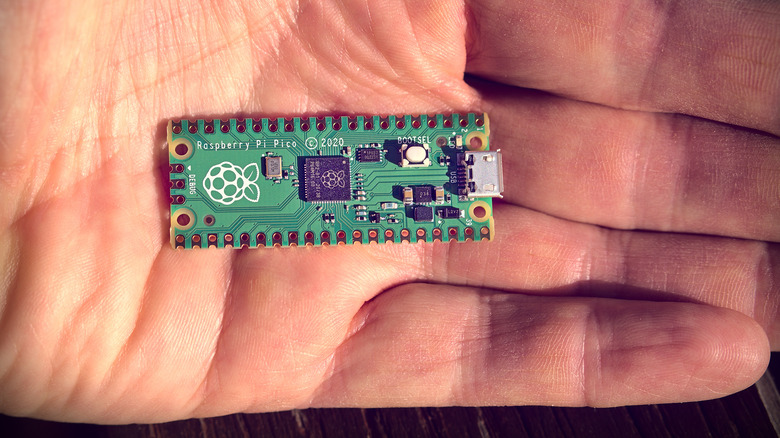This New $6 Raspberry Pi Is The Computer The DIY Smart Home Needs
Raspberry Pi, the U.K.-based manufacturer of single board computers (SBCs), has been making these affordable, capable computing modules for a decade now. Over the years, the company has developed several iterations and variants of its products. What was originally meant to be a very affordable commuting platform to teach introductory computer science to school and college kids has since been lapped up by users who have varied interests. Today, it is not uncommon for Raspberry Pi computers to be used for various small computing needs as diverse as setting up one's own home-based weather station to using them as multimedia controllers.
While affordability has always been a key driver for Raspberry Pi, back in January 2021, the company outdid itself when it announced one of its most affordable products ever in the form of the Raspberry Pi Pico. This product, which also happened to be the company's first-ever machine to use a single microcontroller chip, had an incredible price tag of $4. However, given the incredibly low cost of the product, it did come with a couple of drawbacks. Key among them is the lack of Wi-Fi support, not to mention the absence of a dedicated reset button.
More than a year since the arrival of the Raspberry Pi Pico, the company has decided it needed an upgrade. Earlier today, Raspberry Pi announced the launch of the new Raspberry Pi Pico W, which fixes one of these omissions. As you may have already figured, the W in the Raspberry Pi Pico W denotes support for Wi-Fi.
Raspberry Pi Pico W: Things you should know
In terms of hardware, the Raspberry Pi Pico W is identical to its predecessor; it sports the same RP2040 Arm Cortex M0+ Dual-Core SoC, which is based on TSMC's 40nm low power manufacturing process. This chip clocks up to 133MHz and also packs in 264KB of SRAM. There is 2MB of onboard flash storage thrown in, as well. Additionally, the machine features a 40-pin GPIO just like the original Pico from 2021. The onboard micro USB controller can be used for data transfer and receiving power.
The Wi-Fi module on the Raspberry Pi Pico is the Infineon CYW43439 wireless that, apart from supporting 2.4GHz Wi-Fi networks, also adds Bluetooth Classic and Bluetooth Low-Energy support. However, as of now, Raspberry has chosen not to enable Bluetooth capability in the machine. The company does not rule out the possibility of enabling Bluetooth further down the line, though.
With over 2 million Raspberry Pi Pico boards in the hands of consumers, the company expects its new model to enjoy similar success. The company also believes that the ongoing chip shortage has been among the prime reasons for the popularity of the RP2040-based Raspberry Pi Pico. The Pico W, thanks to its newfound wireless capability, will continue to be a great product that can power many IoT-based applications and DIY smart home needs. With a price tag of $6, the Raspberry Pi Pico W costs just $2 more than its predecessor. As the ecosystem for starter microcontrollers evolves, the $6 you spend on the Pico W will definitely be a worthwhile investment.
